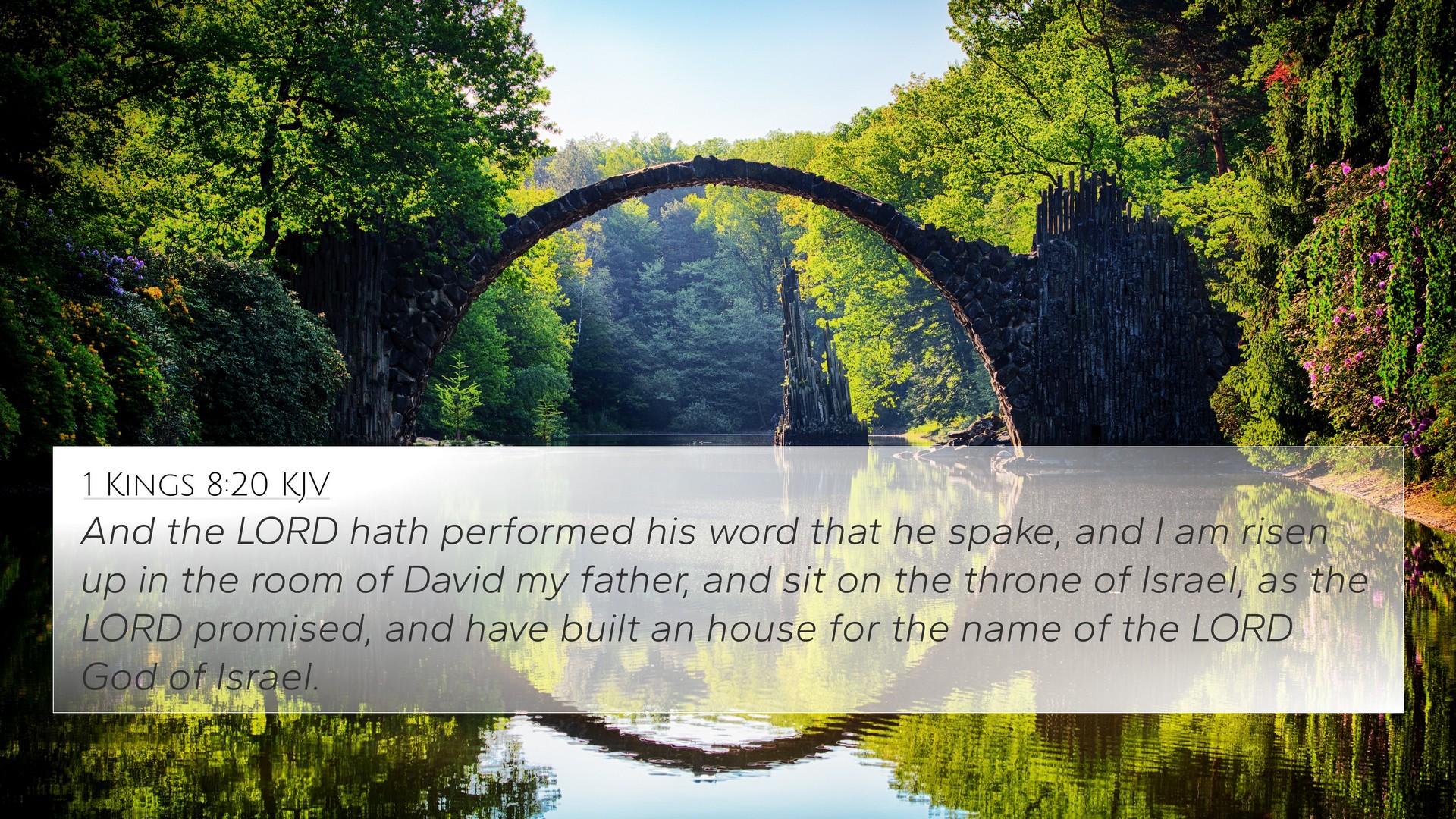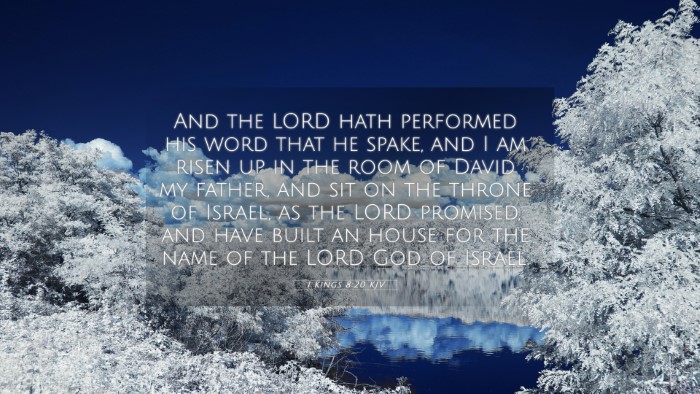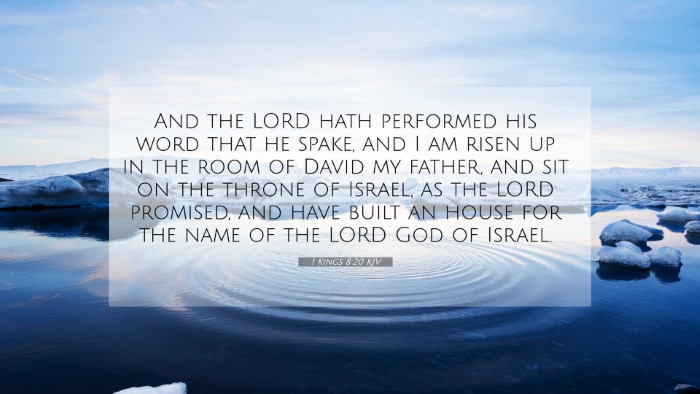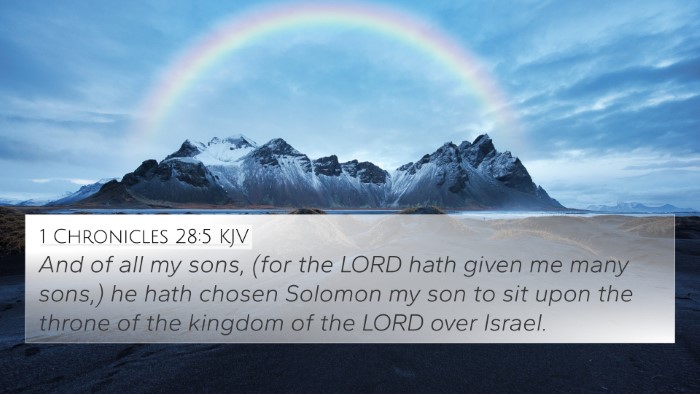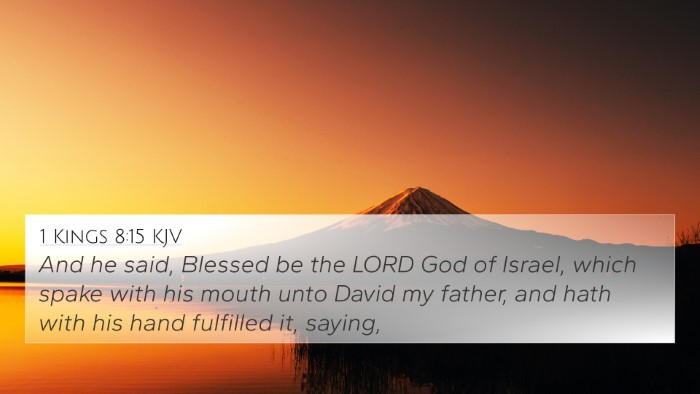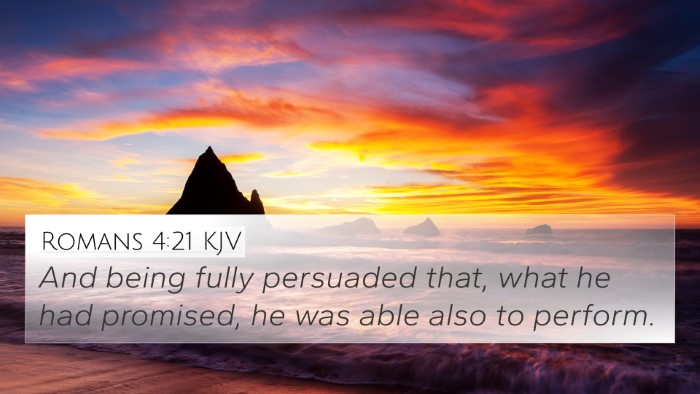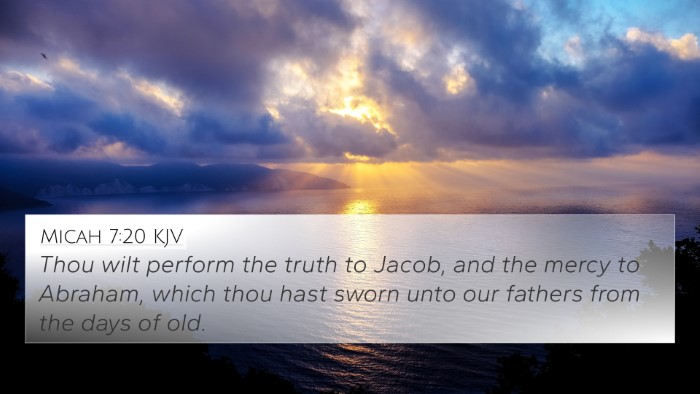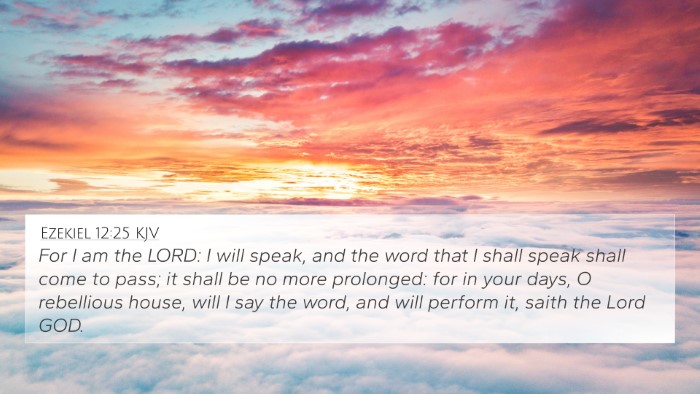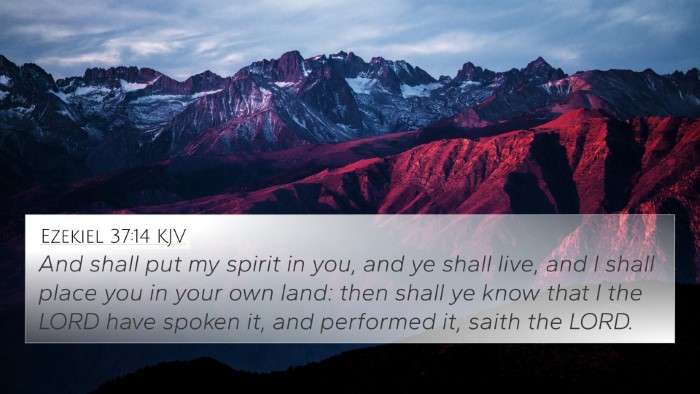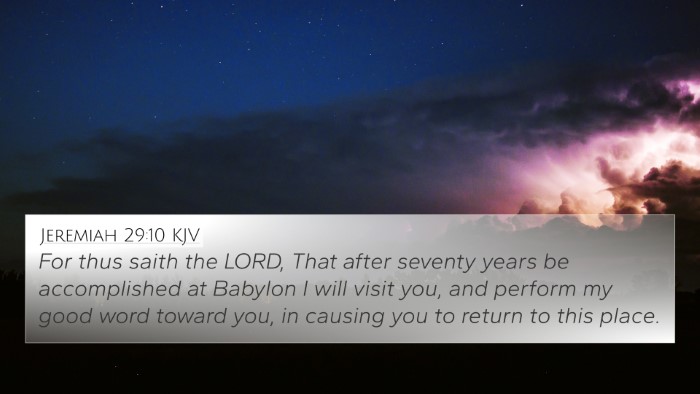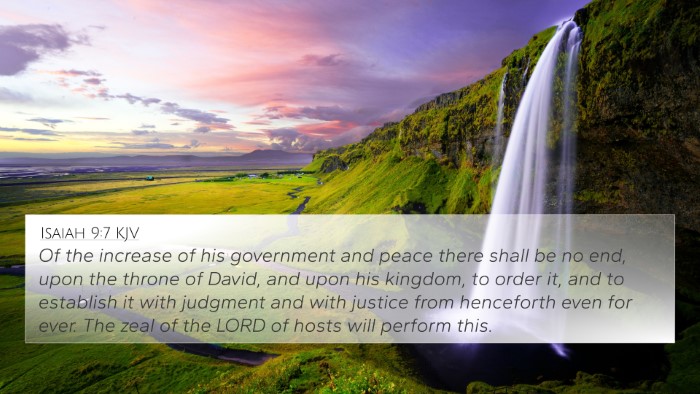Understanding 1 Kings 8:20
1 Kings 8:20 states: "And the Lord has fulfilled His word which He spoke; and I have filled the position of my father David, and sit on the throne of Israel, as the Lord promised, and have built a house for the name of the Lord God of Israel."
This verse highlights significant themes in the biblical narrative, particularly God's faithfulness to His promises and the realization of divine plans through human actions.
Contextual Background
In the context of 1 Kings, this passage reflects Solomon's acknowledgment of God's commitment to Israel and the fulfillment of His covenant with David. Solomon is expressing gratitude and recognition of the divine foundation of his kingship and the temple he built.
Commentary Insights
- Matthew Henry: Solomon acknowledges God's sovereignty and faithfulness. Henry emphasizes that God kept His promise of succession to David's throne. He notes the importance of recognizing God's hand in the establishment of the temple and the kingdom.
- Albert Barnes: Barnes points out that the building of the temple is a significant milestone that illustrates the transition of Israel's worship. He underlines that Solomon's reign is both a fulfillment of God's promise and a pivotal development in Israel's history.
- Adam Clarke: Clarke elaborates on the implications of God fulfilling His promise, emphasizing that God's faithfulness should inspire confidence in His future promises. He also expounds on the idea that the temple represents both a permanent place of worship and God's continued presence among His people.
Thematic Connections
This verse finds thematic connections with several important biblical themes:
- The Faithfulness of God: The notion that God fulfills His promises is a central theme throughout scripture. This idea resonates throughout the Old Testament and into the New Testament, as seen in verses such as Joshua 21:45 and 2 Peter 3:9.
- Divine Sovereignty: The recognition of God’s ultimate authority in establishing kings, as referenced in Psalm 75:7.
- The Role of Prayer and Dedication: Solomon’s dedication of the temple in this context parallels 1 Chronicles 29:10-20 and it shows the importance of prayer in the life of a believer.
- Christological Foreshadowing: By establishing a house for worship, this foreshadows the coming of Christ as the ultimate High Priest and the establishment of the new covenant in Hebrews 10:19-22.
- The Unbreakable Covenant: God’s covenant with David finds expression in 2 Samuel 7:12-16, providing a link to the messianic fulfillment through Christ.
Cross-References and Their Meaning
Below are several biblical cross-references that relate to the core themes found in 1 Kings 8:20:
- 2 Samuel 7:12-13 - God's promise to David about his lineage.
- 1 Chronicles 17:11-14 - The covenant reaffirmed regarding David’s descendants.
- Hebrews 8:1-2 - The portrayal of Christ as the High Priest in the heavenly sanctuary.
- Psalm 132:11 - Confirmation of God's oath to David about his descendants reigning on the throne.
- Isaiah 9:7 - Prophecy about the establishment of a kingdom through the son of David.
- Luke 1:32-33 - The angel's declaration to Mary about Jesus's eternal kingdom.
- Acts 2:30 - Peter’s declaration about David's lineage pointing to Christ.
Conclusion
1 Kings 8:20 is a powerful reminder of God’s faithfulness in fulfilling His word and promises. Solomon's acknowledgment encapsulates the essence of reverence for God's plan, highlighting the importance of looking for connections between the Old and New Testaments. Recognizing the inter-Biblical dialogue is essential for deeper understanding and study.
Through this passage and its connections, we see the overarching narrative of God's covenant people and His unwavering commitment to them, illustrating the richness of scriptural cross-referencing.
